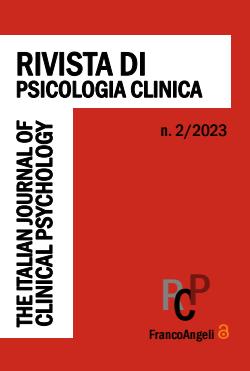Fascicolo 1/2025
Regular Articles
- Luigi Brocca, Alessandro Gennaro, Pierpaolo Limone, Angelo Rega, Finding out Synergy between Organization and Subjectivity: Introducing the SCOPRI Method (Finding out Synergy between Organization and Subjectivity: Introducing the SCOPRI Method)
- Ilaria Guacci, Luigi Brocca, Ilaria Ulgharaita, Filippo Sacquegna, Maria Luisa Lezzi, Danilo Cozzoli, Dynamics of Change in Communities: The governance of organizational and cultural evolution
- Matteo Reho, Silvia Bellone, Gianni Cacciatore, Linda Campilongo, Lorenzo Chiga, Sara Gemma, Federica Leonardis, Giovanna Massari, Oronzo Mazzeo, Andrea Mele, Sara Ponturi, Alessandro Puscio, Alessia Renzi, Alessia Sternativo, Gloria Lagetto, Hospital Psychology Services: Representations of structural and functional changes (Hospital Psychology Services: Representations of structural and functional changes)
- Paola Porcelli, Elisabetta Baldin, Francesca Pansera, Raffaele Visintini, The Evolving Landscape of BPD Treatments: What GET (Group Experience Therapy) can add up to standardized treatment for BPD (The Evolving Landscape of BPD Treatments: What GET (Group Experience Therapy) can add up to standardized treatment for BPD)
